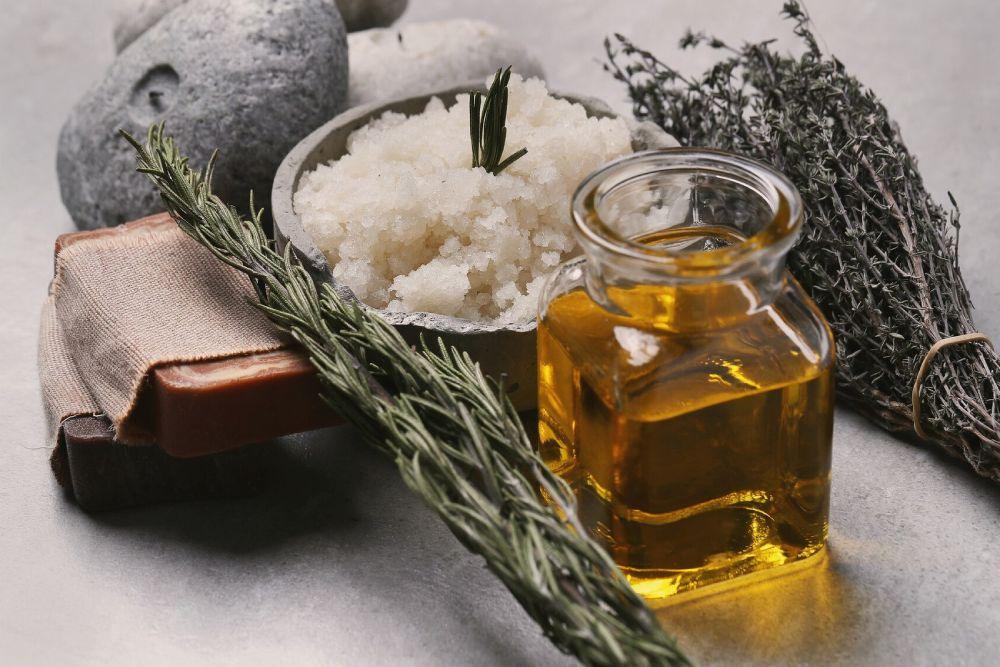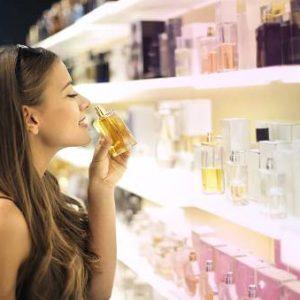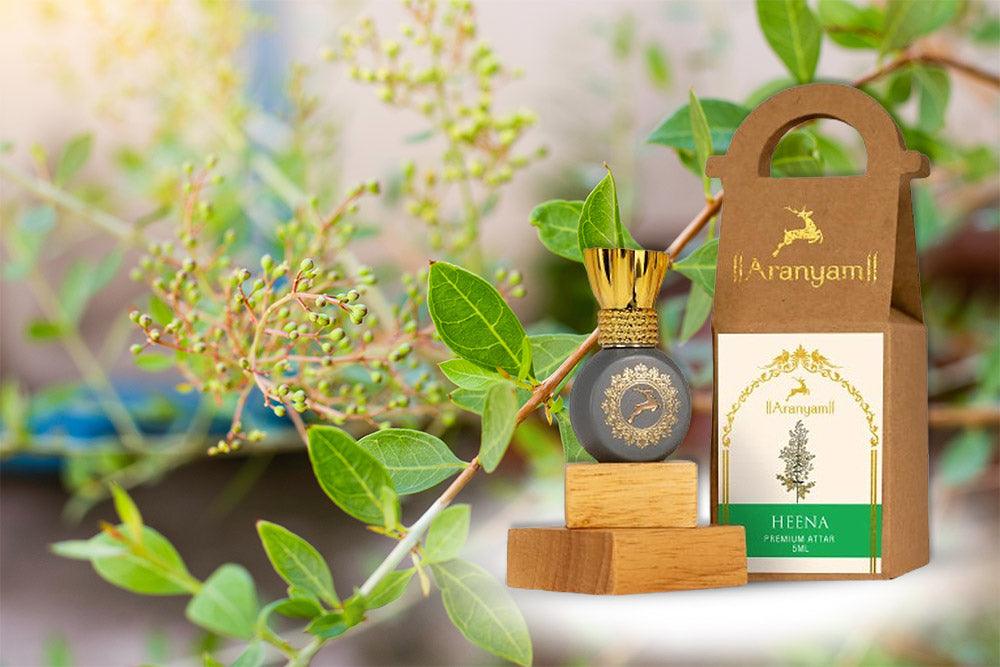
Natural vs Synthetic Alcohol in Perfumes: Health Perspective
The world of fragrances is as complex as it is fragrant, with many ingredients that go into creating the perfect scent. Among these, alcohol is a crucial component, serving as a solvent that helps stabilize the fragrance and enhance its longevity. However, not all alcohols are created equal. Using natural, pure-grain alcohol versus synthetic alcohol in perfumes is a topic of much debate, particularly from a health perspective. This blog aims to explore the differences between these two types of alcohol, their implications for health, and the potential risks and benefits they carry.
Understanding Natural Pure Grain Alcohol
Natural pure-grain alcohol, ethyl alcohol, or ethanol, is derived from fermented grains. It is considered 'pure' because it contains few additives and impurities. This type of alcohol is often favored in the production of higher-end and natural perfumes for several reasons:
- Hypoallergenic Properties: For many, natural grain alcohol is less likely to cause allergic reactions, making it suitable for sensitive skin.
- Purity and Quality: The lack of additives means users have a lower chance of skin irritation or adverse reactions.
- Environmental Sustainability: Often, the grains used for this alcohol are sourced from organic farms, supporting sustainable practices.
The Case for Synthetic Alcohols
Synthetic Alcohol in Perfumes, commonly known as SD Alcohol or denatured alcohol, are chemically derived. They often contain additives that make them unfit for consumption but effective and cost-efficient for use in perfumes. Here's why they are prevalent:
- Cost-Effectiveness: Synthetic alcohols are less expensive to produce than their natural counterparts, lowering the overall cost of the fragrance.
- Consistency: They provide a consistent base for perfumes, ensuring the scent remains stable over time.
Health Implications of Natural Pure Grain Alcohol in Perfumes
Regarding health, natural pure grain alcohol in perfumes is often viewed favorably. Its hypoallergenic nature makes it a safer choice for those with sensitive skin or allergies. Additionally, as a naturally derived substance, it is considered gentler on the skin with a lower risk of irritation. However, it's important to note that even natural ingredients can cause reactions in certain individuals; thus, patch tests are always recommended.
Health Implications of Synthetic Alcohol in Perfumes
The health implications of synthetic alcohols are more concerning. The additives and chemicals used to denature the alcohol can sometimes cause skin irritation or allergic reactions in sensitive individuals. Furthermore, there are concerns about the long-term health effects of regular exposure to these chemicals, although most are considered safe in the small amounts used in fragrances.
Potential Risks and Benefits
Both natural and synthetic alcohols have their own set of potential risks and benefits that are worth considering:
Natural Pure Grain Alcohol:
- Benefits: less likely to cause skin irritation; considered more eco-friendly; generally preferred for its purity and hypoallergenic properties.
- Risks: It can still cause reactions in some individuals, often making it more expensive, which might affect the affordability of the perfume.
Synthetic Alcohols:
- Benefits: cost-effective; provides consistency in perfume formulation; can increase the longevity of the fragrance.
- Risks: potential for skin irritation or allergic reactions; concerns about the environmental impact of production; the presence of additives might not be ideal for everyone.
Making an Informed Choice
When choosing a fragrance, it's crucial to consider personal sensitivities and health concerns. For those with sensitive skin or allergies, perfumes with natural, pure-grain alcohol might be more suitable. However, for individuals without such problems, synthetic alcohols offer a viable and more affordable option.
Conclusion
The debate between natural pure grain alcohol and synthetic alcohol in fragrances is not just about scent but also about health, sustainability, and personal choice. While natural, pure-grain alcohol is often lauded for its purity and hypoallergenic properties, synthetic alcohols provide affordability and consistency. Ultimately, the choice between the two depends on individual preferences, health considerations, and values. As consumers, understanding the differences and implications can lead to more informed decisions, ensuring that the fragrances we adorn ourselves with are delightful and align with our health and well-being.
Connect with us on Facebook, Instagram and YouTube
Frequently Asked Questions - Natural vs. Synthetic Alcohol in Perfumes (Health Perspective)
What is the role of alcohol in perfume?
Alcohol acts as a carrier or solvent in perfume. It performs several key functions:
- Dissolves Fragrance Oils: Alcohol allows essential oils and other fragrance components to dissolve evenly, creating a smooth and spreadable perfume.
- Dilutes the Fragrance: Alcohol helps dilute the concentrated fragrance oils, making them less intense and more wearable.
- Facilitates Evaporation: Alcohol evaporates relatively quickly, allowing the fragrance to project and be detectable after application.
What are the different types of alcohol used in perfumes?
There are two main types of alcohol used:
- Natural Pure Grain Alcohol (Ethanol): Derived from the fermentation of grains like wheat or corn. This type is known for its purity and minimal additives.
- Synthetic Alcohol (SD Alcohol or Denatured Alcohol): Chemically produced alcohol, often containing additives that make it unsuitable for consumption.
What are the benefits of using alcohol in perfume?
- Enhanced Fragrance Experience: Alcohol helps the fragrance disperse and project, creating a more noticeable and long-lasting scent.
- Smoother Application: Alcohol allows the perfume to spread evenly across the skin, preventing a patchy application.
- Preservation: Some alcohols can help preserve the perfume and prevent the fragrance from turning over time.
What is natural pure-grain alcohol?
Natural pure grain alcohol, also known as ethyl alcohol or ethanol, is derived from the fermentation of grains like corn or wheat. It's a relatively pure alcohol with minimal additives.
Why is natural grain alcohol preferred in some perfumes?
- Hypoallergenic Properties: Due to its lack of harsh additives, natural grain alcohol is less likely to cause irritation or allergic reactions in individuals with sensitive skin.
- Purity and Quality: The purity of natural grain alcohol minimizes the risk of skin irritation commonly associated with synthetic alcohols.
- Sustainable Choice: When sourced from organic farms, natural grain alcohol production aligns with environmentally conscious practices.
Is natural grain alcohol hypoallergenic?
While generally considered less likely to cause allergies, it's important to remember that anyone can develop allergies to any substance. A patch test on a small area of your skin is recommended before regular use, especially for those with sensitive skin.
Is natural grain alcohol more sustainable?
Production of natural grain alcohol can be more sustainable compared to synthetic alternatives. When sourced from organic farms, it reduces the environmental impact of agriculture.
What are synthetic alcohols?
Synthetic alcohols are man-made alternatives to natural grain alcohol. They are often less expensive to produce but may contain additives to make them unfit for consumption.
Why are synthetic alcohols commonly used in perfumes?
-
Cost-Effectiveness: Synthetic alcohols are significantly cheaper to produce than natural grain alcohol, lowering the overall cost of the perfume.
-
Consistency: They offer a consistent base for perfume formulations, ensuring the scent remains stable over time.
Are synthetic alcohols safe?
Most synthetic alcohols are considered safe when used in the small amounts typically found in fragrances. However, the presence of additives can sometimes cause:
- Skin irritation in sensitive individuals.
- Allergic reactions in those with specific sensitivities.
- Health Concerns
Can natural grain alcohol irritate the skin?
Even natural grain alcohol has the potential to irritate some people's skin. A patch test is always recommended before full use, especially for those with sensitive skin.
Can synthetic alcohols cause allergic reactions?
Yes, the additives present in synthetic alcohols can trigger allergic reactions in some individuals. Symptoms may include redness, itching, or burning at the application site.
Are there long-term health risks associated with synthetic alcohols?
While more research is ongoing, some concerns exist about the long-term health effects of regular exposure to the chemicals used in synthetic alcohols. However, the amounts used in perfumes are generally considered safe.
Which type of alcohol is better for sensitive skin?
Natural grain alcohol is generally a better choice for sensitive skin due to its lower potential for irritation. Opt for perfumes labeled "alcohol-free" or "natural" if you have severe sensitivities.
When would someone choose a perfume with synthetic alcohol?
Someone with no known skin sensitivities might choose a perfume with synthetic alcohol due to its affordability and wide availability.
How much does the type of alcohol affect the fragrance itself?
The type of alcohol can slightly influence the scent's character in a few ways:
- Evaporation Rate: Synthetic alcohols often evaporate quicker than natural grain alcohol. This can impact the longevity of the fragrance, potentially causing the scent to fade faster.
- Fragrance Diffusion: The type of alcohol can affect how the fragrance diffuses. Natural grain alcohol might allow for a more subtle and nuanced scent experience, while synthetic alcohols might project the fragrance more intensely at first.
- Top Note vs. Base Note: The evaporation rate of the alcohol can influence how the different fragrance notes (top, middle, base) are perceived. Natural grain alcohol might allow the base notes to emerge sooner, while synthetic alcohols might keep the top notes prominent for a longer duration.
Making an Informed Decision
What factors should I consider when choosing a perfume?
- Skin Sensitivity: If you have sensitive skin, prioritize natural grain alcohol or alcohol-free perfumes.
- Desired Fragrance: Consider the type of fragrance you prefer. Natural perfumes often offer a more subtle and complex scent experience compared to synthetic fragrances.
- Budget: Natural grain alcohol perfumes can sometimes be more expensive.
- Values: Consider your preference for natural ingredients and sustainable practices.
How can I test my sensitivity to a perfume's alcohol content?
Apply a small amount of the perfume to a clean, inconspicuous area of your skin, like your inner wrist. Wait 24 hours and observe for any signs of irritation or redness. If you experience any discomfort, discontinue use.
Are natural perfumes always more expensive than synthetic perfumes?
While some natural perfumes may be pricier, the cost can vary. Factors like ingredient rarity and brand reputation can influence price. Look for brands committed to offering high-quality natural perfumes at accessible prices.
What are the environmental considerations of natural vs. synthetic alcohols?
Natural grain alcohol production, especially when sourced organically, has a lower environmental impact compared to synthetic alternatives. Natural grain alcohol production utilizes renewable resources and avoids the potential pollutants associated with some synthetic alcohol production methods.


